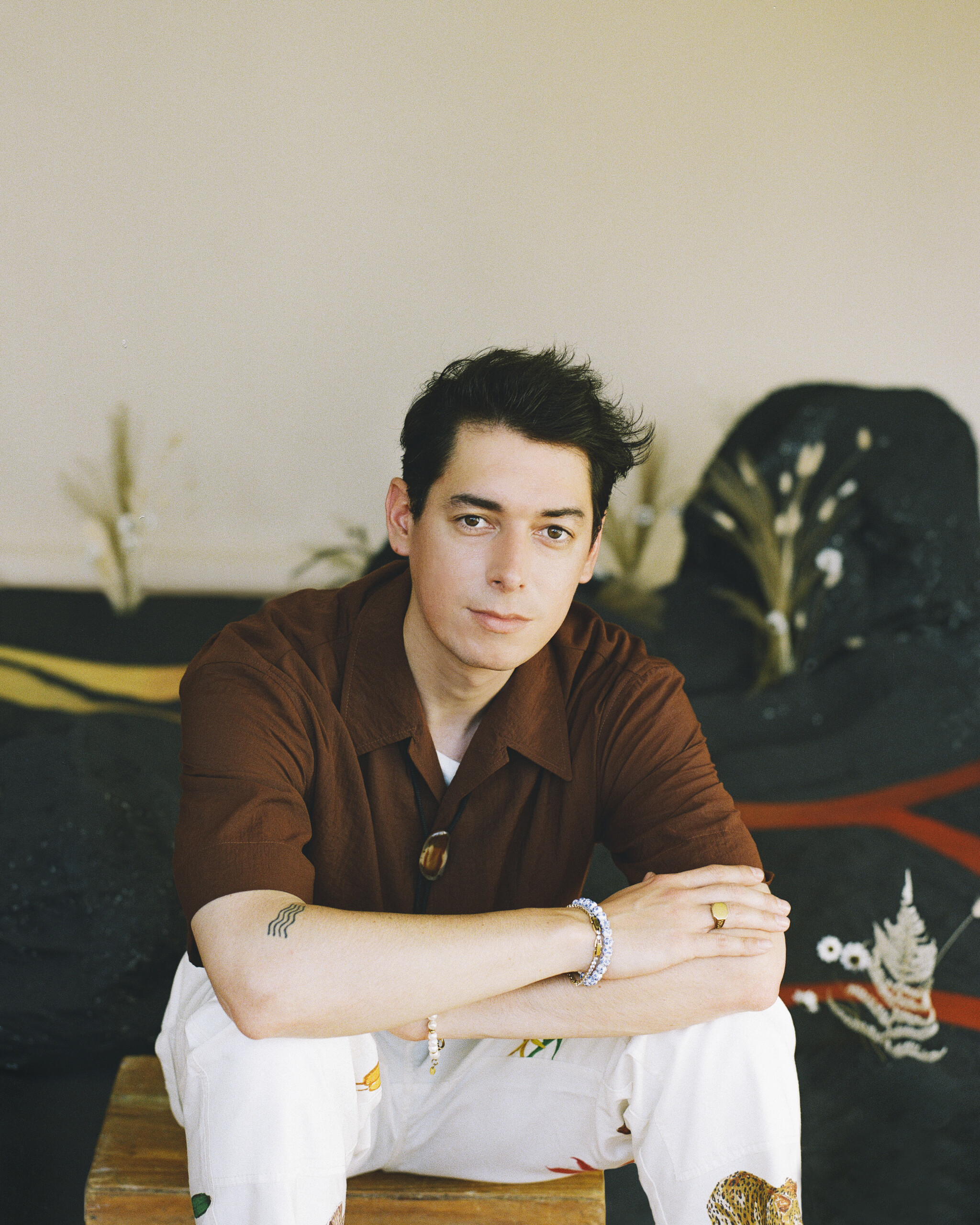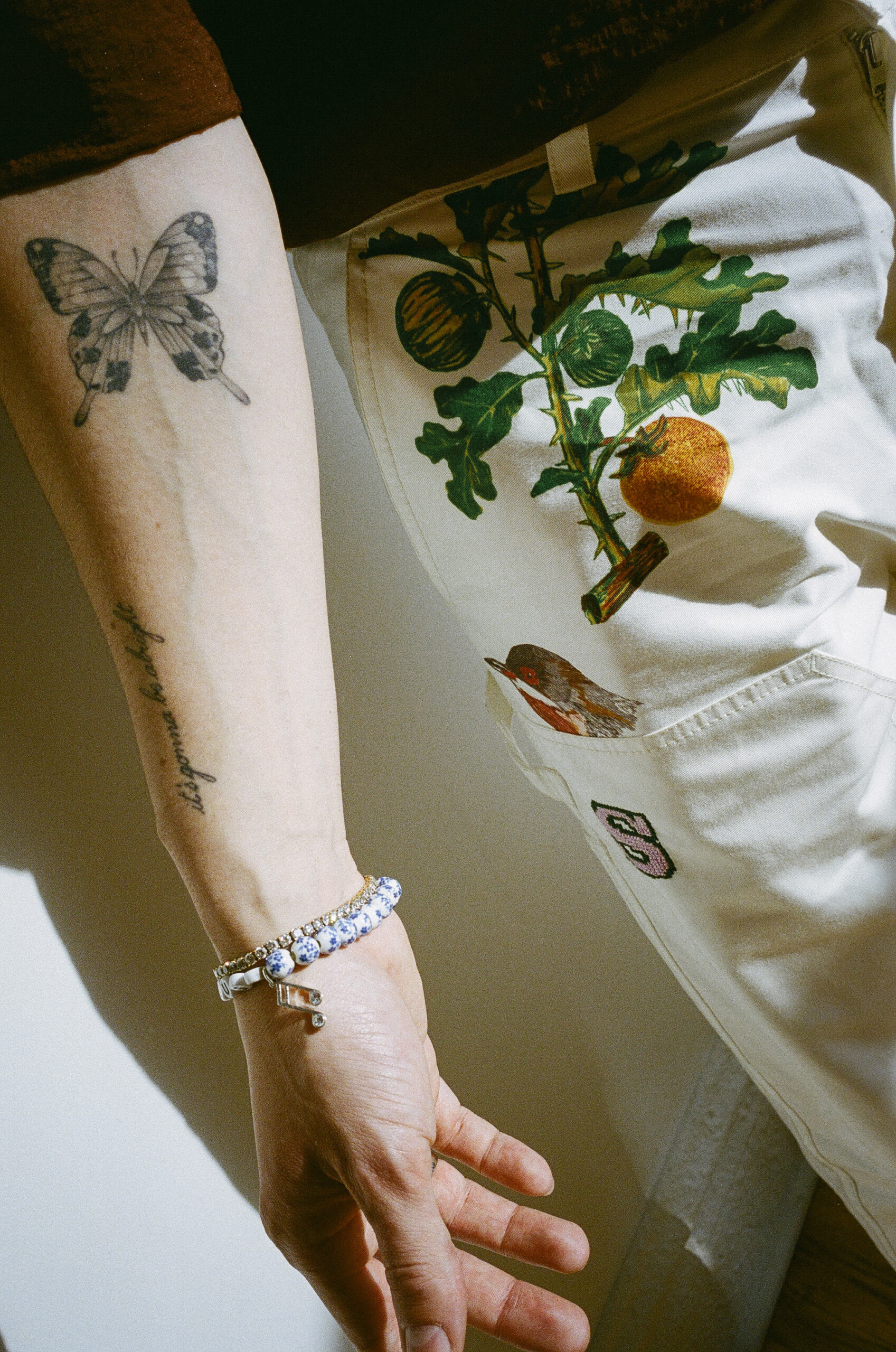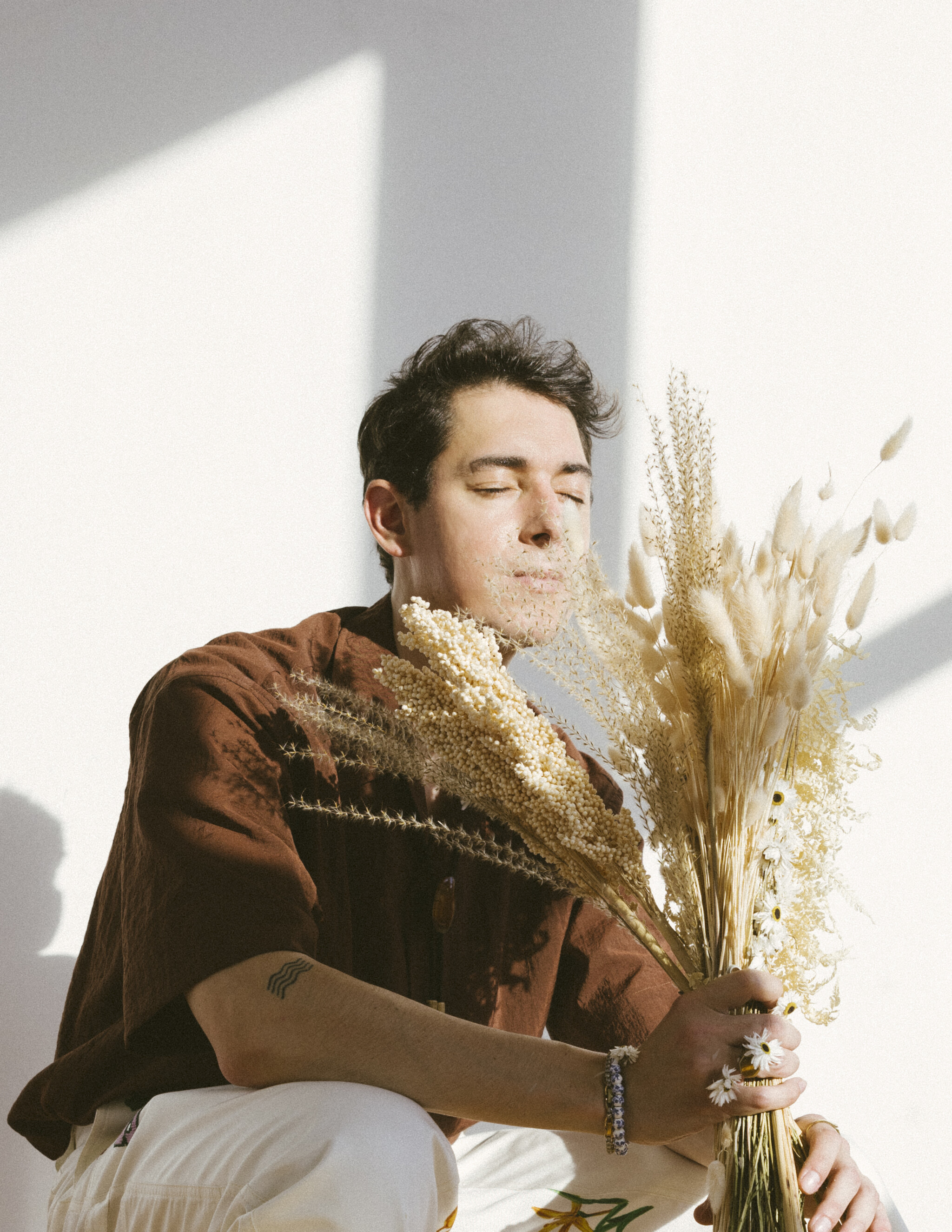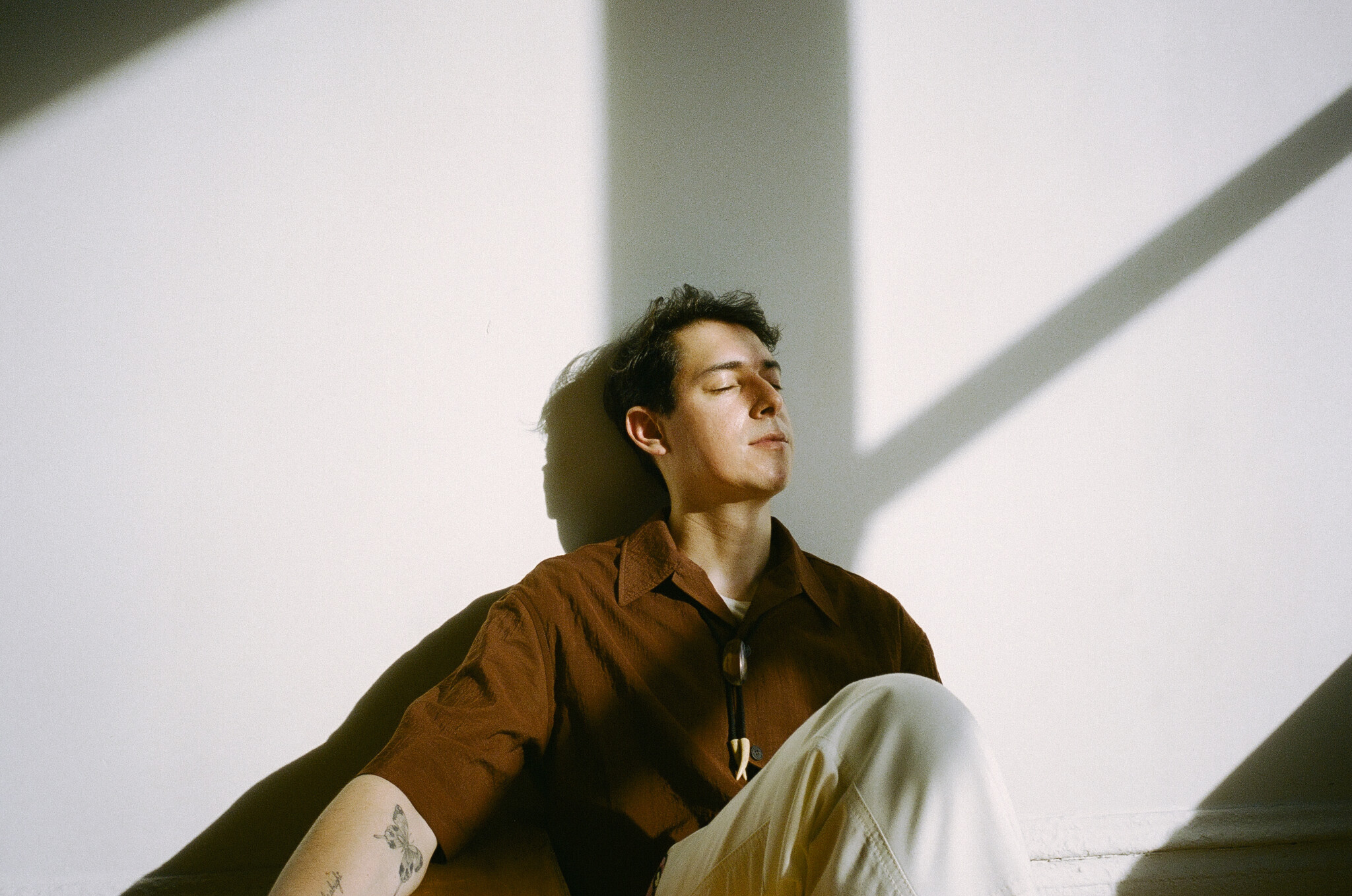Text by Sarah-Eve Leduc
Photos by Steven Piper
Darius is a dynamic musician with a story to tell. Born in Bordeaux 32 years ago, Terence N’Guyen, aka Darius, is above all an internationally recognized artist who has accumulated millions of listeners around the world. An international presence that also enriched the DJ, whose travels inspire new tracks or new creations.
Heir to the filtered house music of the French Touch’s golden age, but nourished by multiple inspirations, Darius draws his own path, different from his elders. After the release of his first album Utopia in 2017 and his maxi single Equilibrium last year, he comes back in a big way with Feel Right, a captivating track with an unstoppable groove, which was released on June 15.
Darius is not only passionate about music: he also works on many other projects, especially photographic ones. Passionate about analog photography, some of his most significant travels have inspired him to create unique images, through which he progressively asserts his style.
There are unique sensations transcribed in his pictures, which you can now enjoy on his personal Instagram @terencemeunier. Jordan, Greece, Marseille, Florida… His inspirations are numerous and varied.
We had the pleasure to discuss with him.

Flanelle : Who were you 10 years ago, and how have you evolved since then?
Darius : Good question. In fact, I feel like I’m going back to the Darius from 10 years ago, musically. I go back to the basics in Funk, Soul and House music. These are songs which my mother made me listen to when I was a kid and I want to pay tribute to them, because it is something that I want people to feel through my music. I had lost sight of that in 2017-18, when my first album was released. I had made music with designer sounds, and it wasn’t really pop songs. That first album was a bit of a test for me, my era of rest, but today I am going back to the basics and to what I really liked from the beginning.
How did you start in the music world, what was your artistic path?
Essentially, my father is a musician, he composed his music, he plays the keyboard, the guitar, the drums, the bass, and he also draws…He is an artist and I saw him create when I was a child. I lived with my mother back then, but when I visited my father it felt like a playground because he had a room with all these musical instruments. He also introduced me to my first composition software. Every time I went to his house, when I was around 10 years old, I spent my time in that room. He gave me keyboards, which I brought back to my mother’s place, and every night after class I played while trying to reproduce songs that I liked. My mother listened to a lot of music and she made me discover the musical style that really inspired me since I was young.
Before starting Darius, I was studying graphic design. I loved drawing logos, cars, etc. During all these years, I continued to create music without sharing it. It was in Lyon, when I was around 18, that I met friends who played music in clubs and made a living from it. I made them listen to my demos and they told me to start on Myspace at that time. It was quite a difficult year for me, I was doing my studies alternately, financially it was also difficult… and so I decided to drop everything to take a sabbatical year to focus on music.
Everyone I work with now, even my label ROCHE MUSIQUE, are people I met at that time, on Myspace, on Soundcloud and on the internet. Because we had a disco-house/disco-funk movement and found ourselves playing together at parties. We have always kept this inspiring community together.
How did you shape your French House music style ? Did you get inspired by others in the industry?
I am inspired by everything and open to everything, whether it’s rap, hip-hop, etc. However, I always like to extract on sounds from the 70s and 80s, whether it’s drums or synths. I don’t even know how to define my music, but I would like it to be rich, timeless and complete. I would like for people to escape for a few minutes when they listen to it.

A year before your first Ep Velour, you started Cherokee with Dorian. Do you usually prefer creating with others, or on your own ?
Back when we had Cherokee, we stopped our duets because I had a lot to express on my side. I was making music that didn’t work in the duo and the transition was difficult. Now, I work mainly alone. On the other hand, I love to bring in several musicians, bassists and guitarists. I mainly play the keyboard but I want to enrich the music with more organic and warm instruments, because the music I want to make is played live. For the feats, I’m thinking a lot about how I produce now, and I’m starting to like working with singers more and more because it inspires more emotions for me, it’s more approachable, and it takes the songs further. It’s also a great opportunity to meet artists.
For the longest time, you had no record of you, the person behind Darius. What made you want to put your foot forward now?
I think it’s mostly about meeting people.There was no photographer in my group at the time.. I am also rather introverted by nature; however, with experience, this no longer bothers me, and on the contrary, I attempt to put myself forward more. But it was also so that people could focus on the music. It was also why I had created a face that looks like me but is stylized a bit like Magritte, it encourages this mystery a bit and I also liked the school of DAFT PUNK. Sometimes I tell myself that I want to start a project in which no one knows who I am, a role in which I can do whatever I want.
It’s true that the portrait done for your EP romance was a really strong image
It’s a face that I had seen in a Magritte exhibition, a painting of a face coming out of the wall with clouds. I was inspired because it was quite unusual at the time to bring out a visual like that.
At what moment did you realise that you’ve ‘made it’? Did that feel like you had imagined it to?
From my point of view I don’t feel like I’ve had success. I’m always looking for it, but it’s not that significant to me because I’m primarily interested in continuing to make music. But the parties, concerts, and people stuck out to me, and it wasn’t until I started playing in front of thousands of people who reacted to my music that I grasped the significance of the situation.
You are also a talented photographer. Are you looking to pursue this as a career or as a hobby ?
What I do are vacation photos. I got into it like that, in a bit of a coincidence. It was a bit of a coincidence that I got into it that way. Although music consumes a large portion of my time, I would like to create a photo album, a collection of all my memories. Given my background as a graphic designer, I would love the opportunity to do some prints and put on an exhibition.
What brings you to 35 mm film cameras instead of digital photography ?
I started with a Canon 5D and a nice 24-70 lens, but I always tended to retouch them to get a film-style grain. So I started shooting with film. The worst part is that I paid quite a lot for my basic camera, and today I still use an incredible camera that I found at Emmaüs for 10 euros! With cameras, It’s similar to music; you can use a digital or analog synth for example, but with the analog you always have something special, there is a warmth in the sounds and a different approach when playing.
What inspires you ?
It’s very much down to chance. In pure creation, there is always a research phase. You play, you jam and at times something unexpected happens, and those are the times I’m looking for. Let it be a small loop of melody and it is on this that I will deepen my piece. It is very subtle and meticulous work.
Do you consider yourself a perfectionist then?
Yeah, absolutely. I used to spend a lot of time on one thing, but I have learned now that at some point you have to let go. It’s like with art and painting, on a canvas, you have the impression that you can always add something. You have to be careful to keep the spontaneity, because if I spend too much time on a piece, I feel like I lose that ‘unpredictable thing’ a little, and I trust that side a lot to create. On the other hand, I can also be impatient to release my music. You often have to wait several months because you have to continue the album and prepare the promos!
Where do you see yourself in 10 years?
I really live from day to day. I have material projections like a comfortable house, projections of a life with my friends and my family, but on the music side I would say that I especially have goals. I would love the opportunity to create film music. It’s something that I would really like, it would be kind of the last goal for me…I think it’s the ultimate art of being able to make a sound that you can see in a film and appreciate in a cinema.

Photographer: Steven Piper, Photo Assistant: Gigi Jones, Set Designer: Zanah Marie, Florist: Penny Gac, Wardrobe Stylist: Taylor Zielinksi, Digitech: Daniel Livingstone

